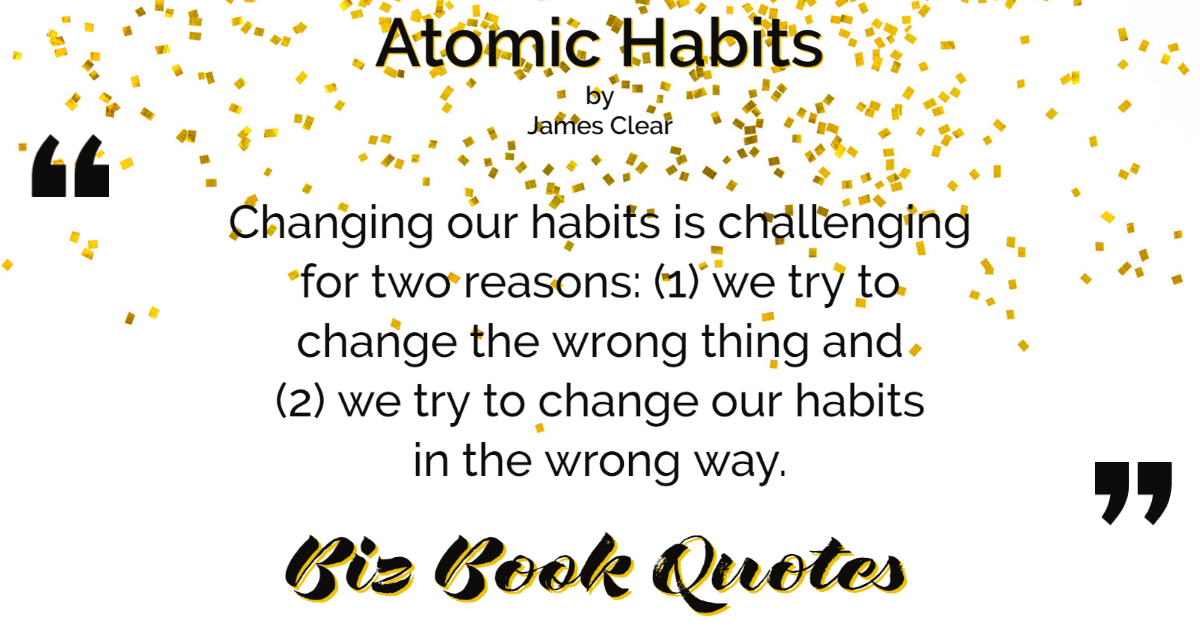 |
Changing our habits is challenging for two reasons: (1) we try to change the wrong thing and (2) we try to change our habits in the wrong way.
|
29 |
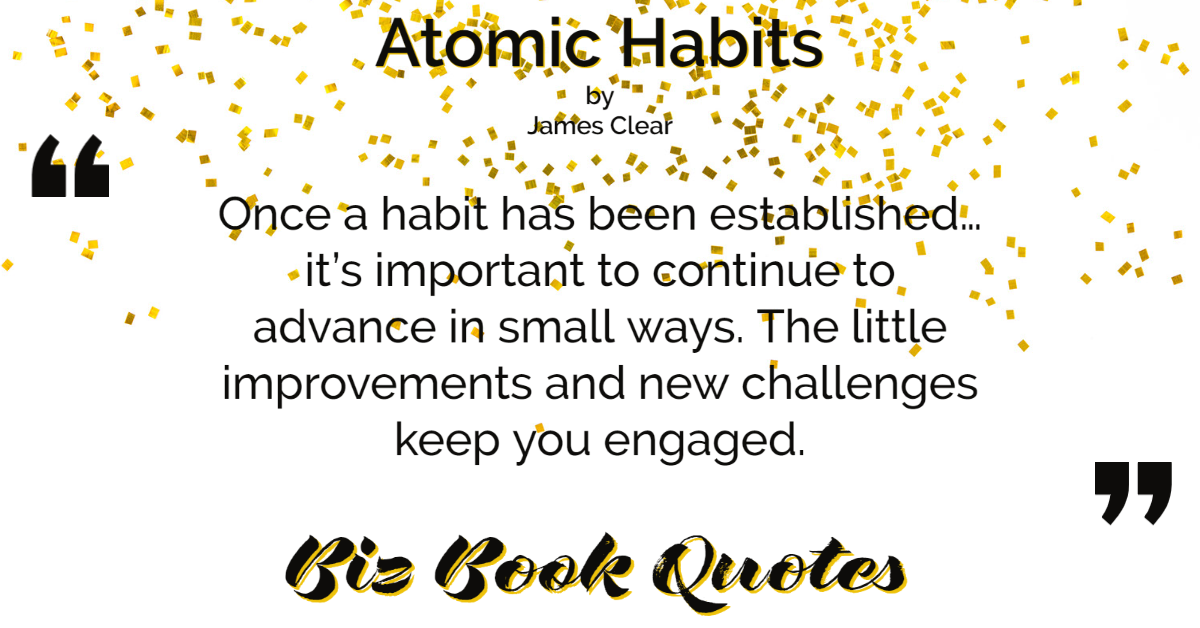 |
Once a habit has been established… it’s important to continue to advance in small ways. The little improvements and new challenges keep you engaged.
|
231 |
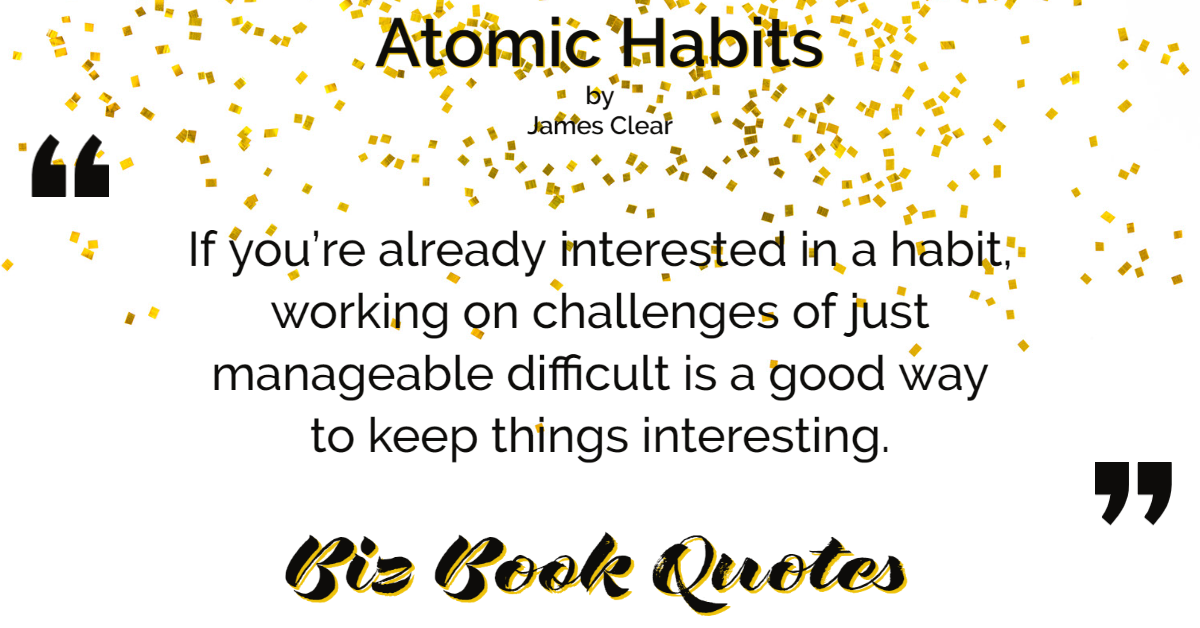 |
If you’re already interested in a habit, working on challenges of just manageable difficulty is a good way to keep things interesting.
|
235 |
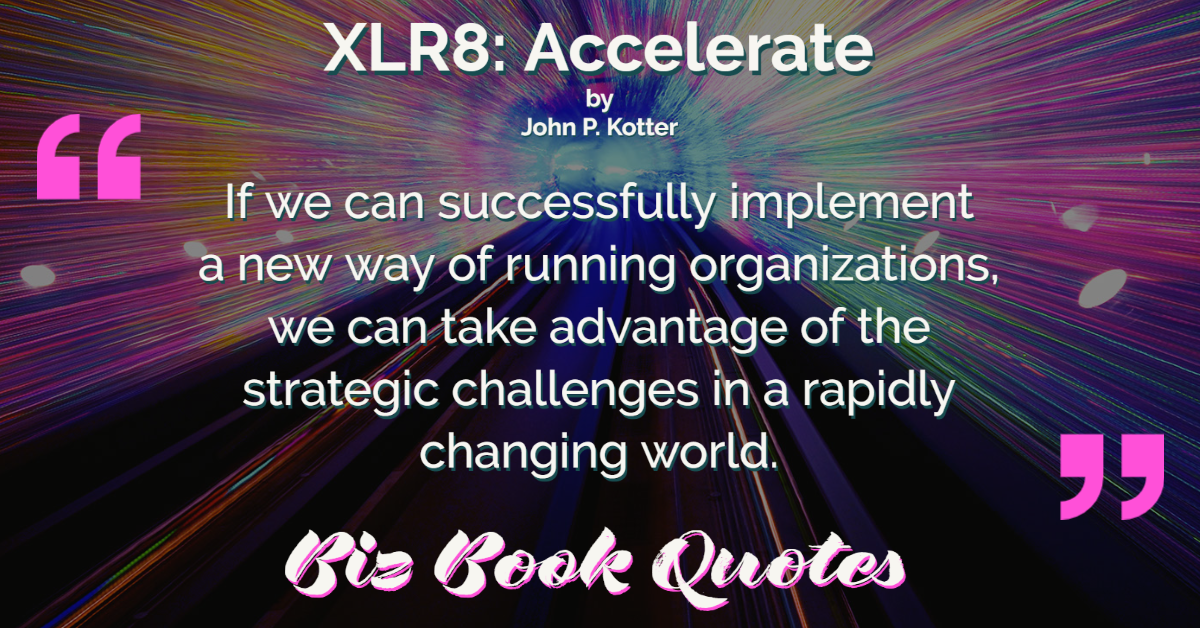 |
If we can successfully implement a new way of running organizations, we can take advantage of the strategic challenges in a rapidly changing world.
|
40 |
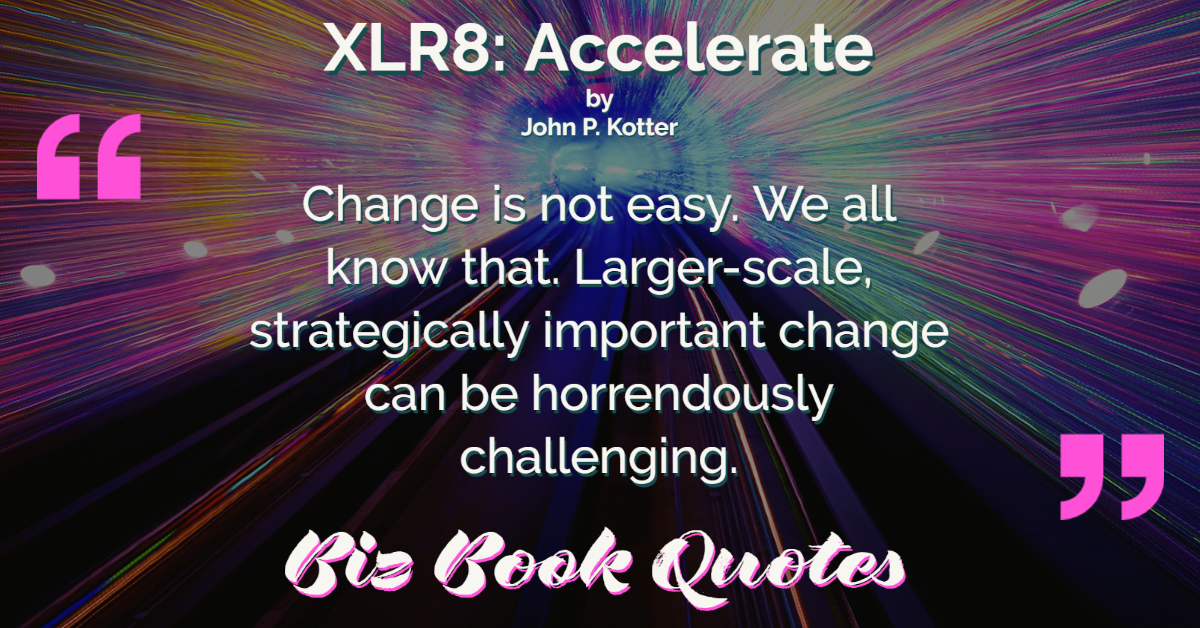 |
Change is not easy. We all know that. Larger-scale, strategically important change can be horrendously challenging.
|
109 |
 |
Although we often talk about this challenge in terms of specifics … the core problem is always about people.
|
109 |
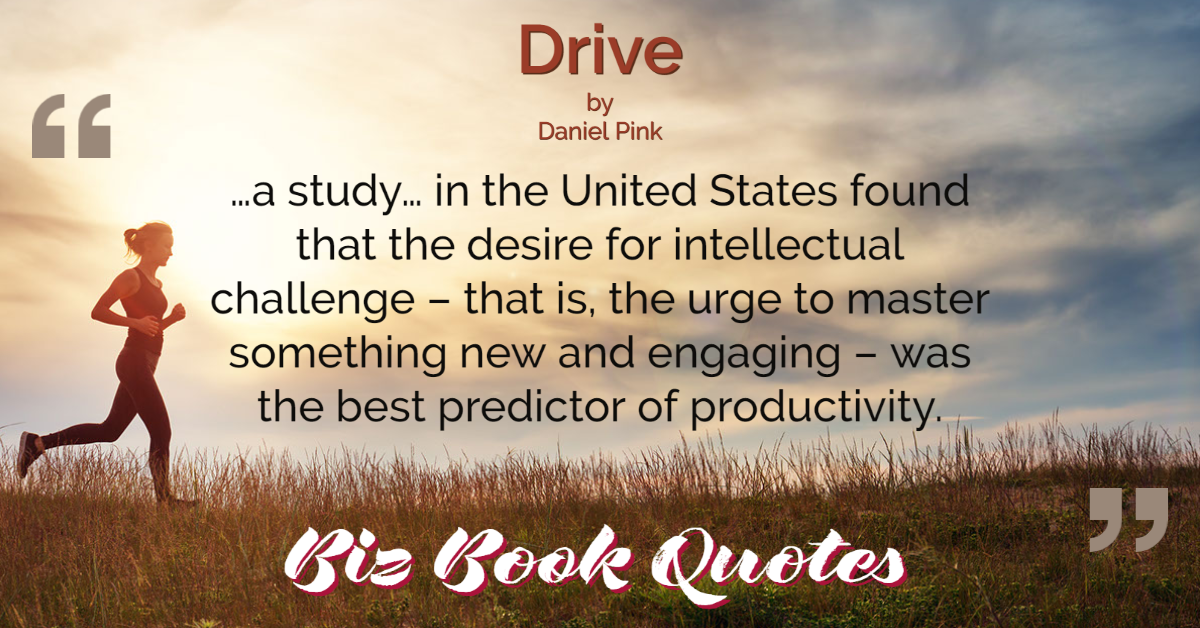 |
…a study… in the United States found that the desire for intellectual challenge – that is, the urge to master something new and engaging – was the best predictor of productivity.
|
117 |
 |
When the going gets tough in a negotiation, your biggest challenge will be your ability to nurture your adversary in spite of everything else going on.
|
118 |
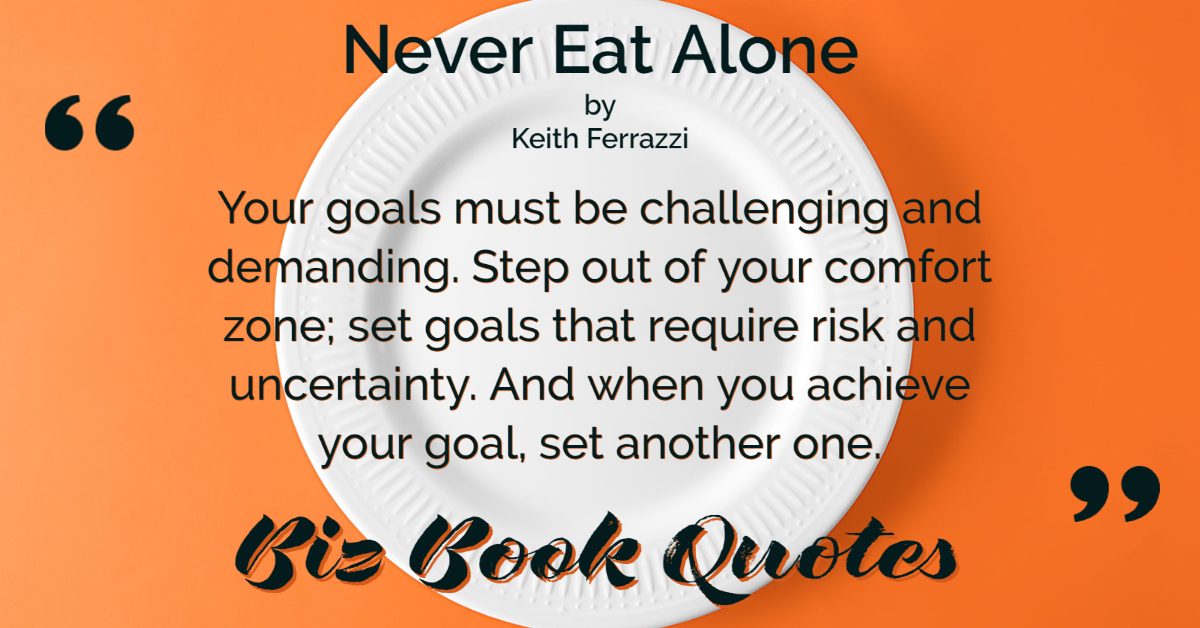 |
Your goals must be challenging and demanding. Step out of your comfort zone; set goals that require risk and uncertainty. And when you achieve your goal, set another one.
|
33 |
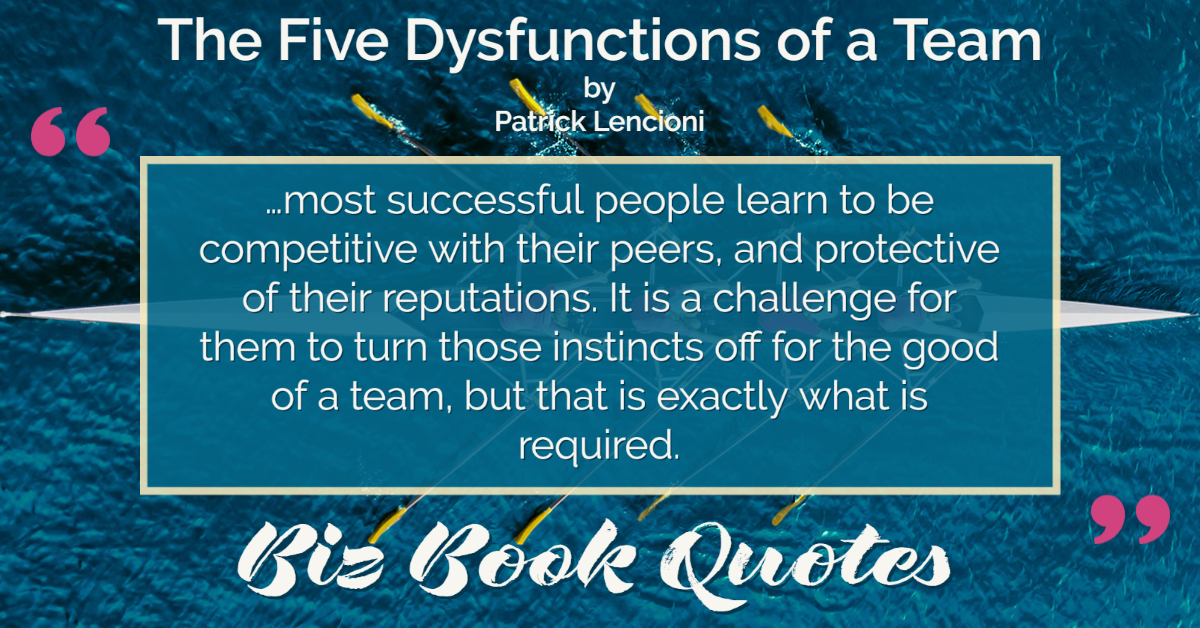 |
…most successful people learn to be competitive with their peers, and protective of their reputations. It is a challenge for them to turn those instincts off for the good of a team, but that is exactly what is required.
|
196 |